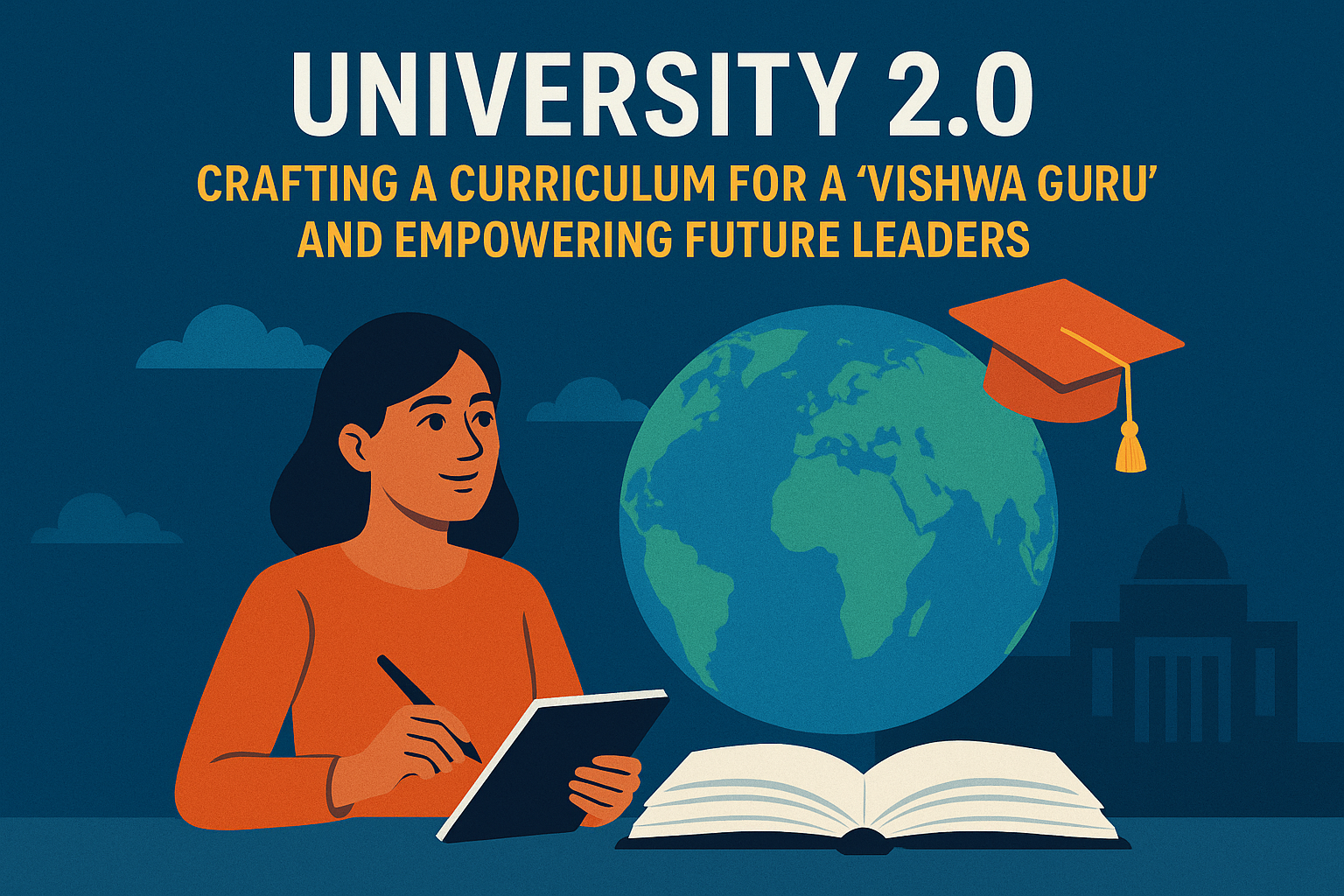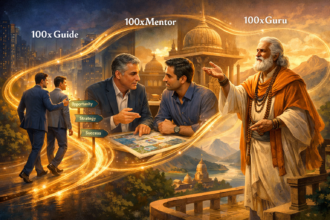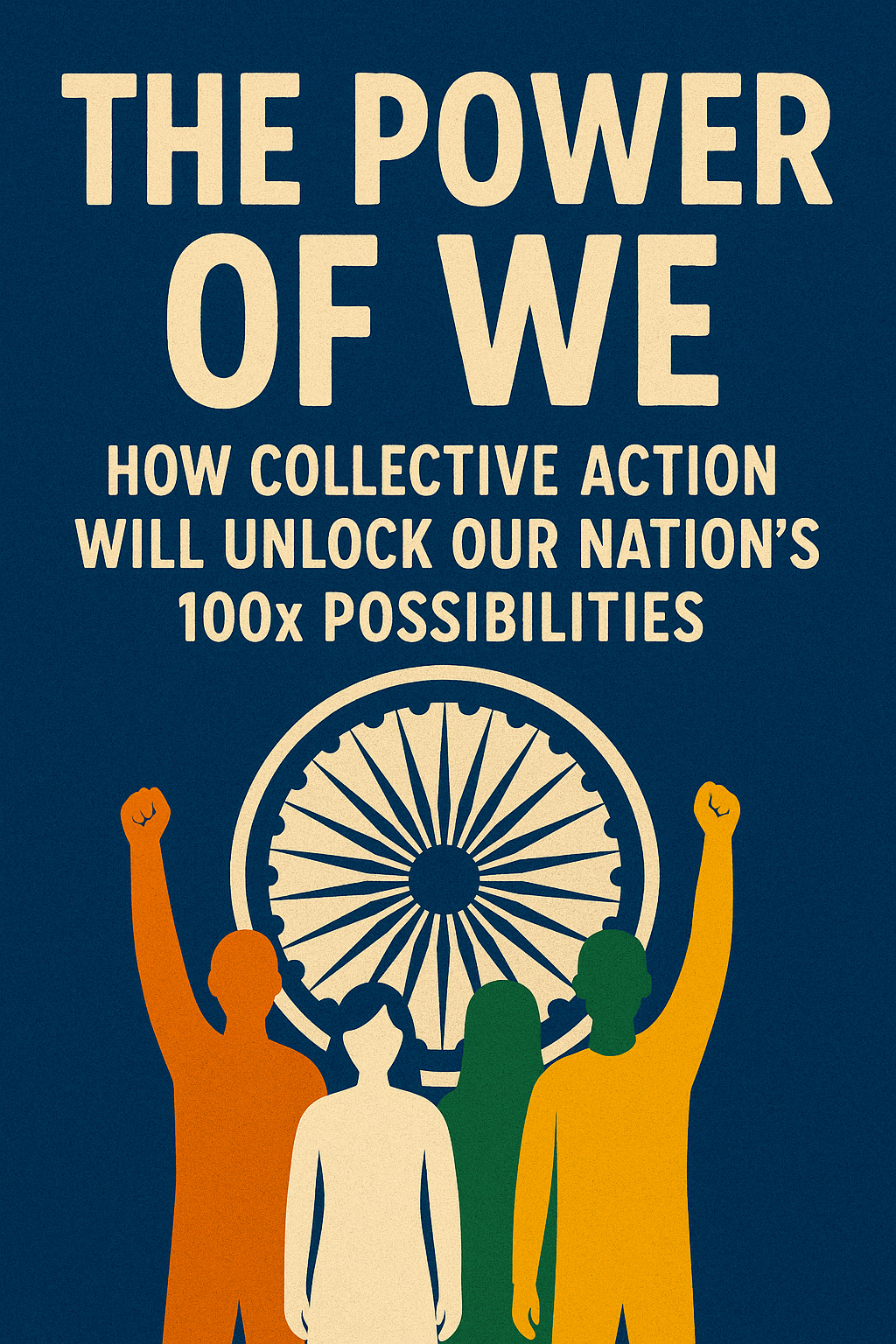To the esteemed University Heads, Chancellors, and Academic Leaders—
Your institutions are more than just places of learning; they are the crucibles where the leaders of tomorrow are forged. As Bharat sets its sights on becoming a ‘Vishwa Guru’ and a ‘Viksit Bharat’ by 2047, the traditional university model must evolve.
The time has come to build University 2.0—a dynamic, forward-looking institution with a curriculum designed not just for a degree, but for a destiny. This is a crucial pillar of the BHARAT 100X VISION, where our higher education system becomes the engine that empowers the NextGen to ‘Unlock their 100x Potential’ and lead the world.
A University 2.0 Curriculum is not about simply adding new subjects; it’s about a fundamental redesign of how and why we teach. It’s about moving from a rigid, soiled structure to an agile, interdisciplinary model that prepares students for a world of rapid change and unprecedented challenges.
The Architecture of the Future-Ready Curriculum
The foundation of a ‘Vishwa Guru’ curriculum rests on three core pillars:
- Interdisciplinary & Experiential Learning: We must dismantle the rigid walls between departments. The future’s biggest problems—climate change, global health crises, and economic inequality—do not fit neatly into a single discipline. A curriculum that combines engineering with ethics, data science with public policy, or medicine with entrepreneurship is how we cultivate well-rounded problem-solvers.
- This is supported by the National Education Policy (NEP) 2020, which champions this holistic approach. Beyond the classroom, a University 2.0 curriculum prioritizes experiential learning—from mandatory internships and field projects to hackathons and social outreach programs. The hands-on experience of building a solar-powered solution for a local community is far more impactful than a theoretical lecture on renewable energy.
- Innovation and Entrepreneurship as Core Subjects: The curriculum must actively foster a mindset of innovation. This means integrating courses on design thinking, venture creation, and intellectual property rights into all streams of study. We must transform our campuses into vibrant startup ecosystems with dedicated incubation centers, seed funding for student ventures, and mentorship from industry veterans. Think of a student who not only graduates with a degree but also a fully-funded startup. This is the new standard of success.
- Global Relevance with Indian Roots: To produce a ‘Vishwa Guru’, our curriculum must be globally competitive while being deeply rooted in our own context. This means integrating subjects on India’s rich history, philosophy, and cultural contributions. Our students should be global citizens who are also proud torchbearers of our heritage. We must also foster partnerships with leading global universities to offer joint degrees, research collaborations, and study-abroad programs. This exposure will equip our students with a global perspective while reinforcing their unique identity.
Your Role as an Architect of the Future
Your leadership is the key to this transformation. You are not just overseeing an institution; you are designing the future of human capital for our nation. The decisions you make now on curriculum design, faculty training, and campus culture will determine whether the next generation of Indians is prepared to lead the world.
This is your invitation to co-create this future. Let’s move beyond traditional metrics and build institutions that are known for their innovation, social impact, and the quality of their leaders.
Join us at BHARAT100x.com and become part of a community dedicated to a transformative journey, where our universities are not just places of knowledge, but true architects of a new, empowered Bharat.
GET READY TO SHARE & SERVE the NXTGEN PROFESSIONAL’S TRANSFORMATION for VIKSIT BHARAT











